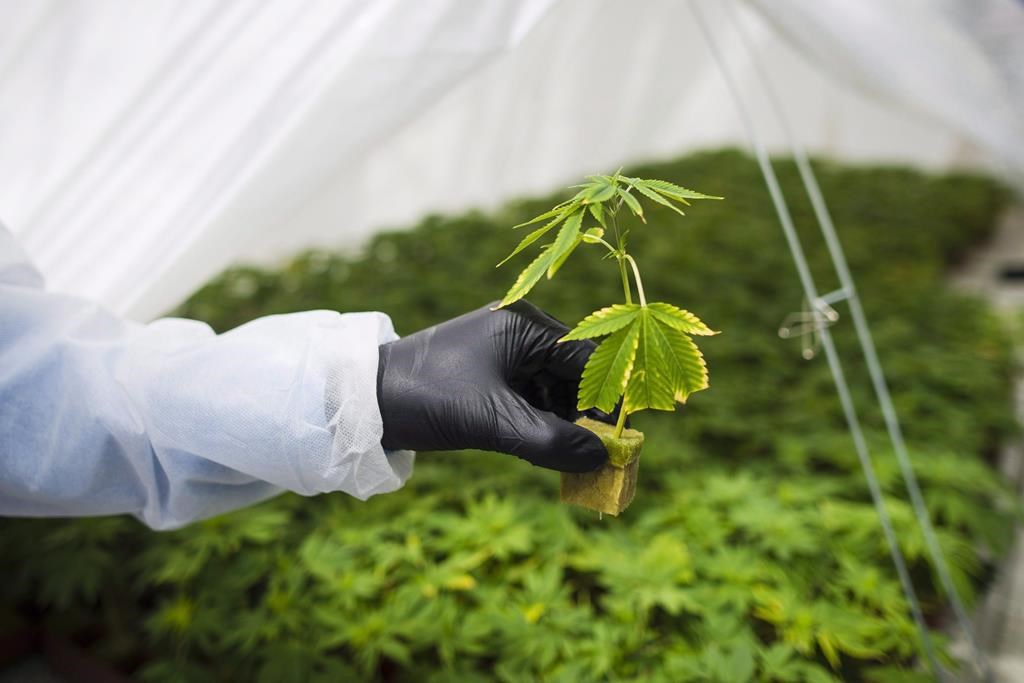Cannabis use may increase the risk of developing a new anxiety disorder or worsen existing anxiety, a large Ontario study suggests.

The study looked at health data of 12 million people between January 2008 and March 2019 and found that 27.5 per cent of people who visited an emergency room for cannabis use developed an anxiety disorder for the first time within three years.
Lead author Dr. Daniel Myran, an adjunct scientist at the research institute ICES, said that in comparison, 5.6 per cent of the general population sought help for anxiety in an ER or outpatient setting over three years.
Myran, who is also an investigator at the Bruyère Research Institute and a clinician investigator at The Ottawa Hospital, said cannabis users may end up in an ER for multiple reasons, including hallucinations, being very high and disoriented or for withdrawal symptoms.
“They might have been having some kind of mental health concerns, were feeling quite depressed and also smoking cannabis very regularly. None of these people had an emergency room visit for anxiety when they first showed up,” he said.
The study did not include data on how much cannabis patients used or what is a safe amount, but Myran said it’s likely they were moderate to heavy users, consumed strong forms of the drug, or both.
Researchers also found that 12.3 per cent of cannabis users with pre-existing anxiety but no record of hospitalization visited an emergency room or were admitted to hospital because their anxiety symptoms worsened.

Get breaking National news
The study published Monday in the Lancet’s open access journal eClinical Medicine says that while people of all ages who had a cannabis-related ER visit were at higher risk of developing new anxiety disorders, the risk was particularly great for males up to age 24.
While some people may self-medicate by using cannabis to relieve anxiety, there is no robust evidence to suggest it is effective for that purpose, Myran said.
“If you’re having problems with your cannabis use or problems with mental health, the first place to start would be a primary care provider to understand what’s going on. And I’m sympathetic and understand that there’s challenges with accessing primary care in many parts of the country,” he said.
“The worrisome signal coming out of the data is that on average, there’s a very strong association between patterns of cannabis use that require care in the emergency room and developing anxiety disorders,” said Myran, adding psychosis and schizophrenia are some conditions that have been associated with heavy cannabis use.
The findings suggest a need for more conversations about potential links between cannabis use and mental health, especially for people who are vulnerable to worsening anxiety or developing it from heavy use, he said.
A Health Canada phone survey of 21,690 people aged 16 and over in 2022 found that nearly half of respondents had not noticed any education campaigns or public health messages about cannabis in the previous 12 months.
About 35 per cent of people who reported using cannabis in the previous 30 days said they were high for one or two hours on a typical day. The highest use was among those aged 20 and 24.
Shea Wood, whose expertise includes cannabis and mental health as part of her work for the Canadian Centre on Substance Use and Addiction, said occasional cannabis use would have a minimal effect on most people when it comes to anxiety disorders.
“However, earlier use of cannabis has been linked to more psychological symptoms so it’s important for youth to delay their use of cannabis as long as possible,” she said in an email to The Canadian Press.
Canadian Press health coverage receives support through a partnership with the Canadian Medical Association. CP is solely responsible for this content.







Comments
Want to discuss? Please read our Commenting Policy first.